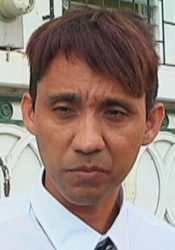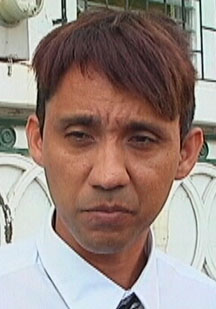The Belize Supreme Court yesterday overturned the country’s sodomy law with Chief Justice Kenneth Benjamin’s landmark ruling that Section 53 of the Criminal Code which criminalises consenting intercourse between adults of the same sex contravenes the right granted by the Belize Constitution, according to the Caribbean Media Corporation (CMC).

Lesbian, Gay, Bisexual and Transgender (LGBT) activist Caleb Orozco, a 42-year-old gay man, and Executive Director of the United Belize Advocacy Movement (UNIBAM), a policy and advocacy human rights NGO, had brought the challenge against the Attorney General in 2010.
Orozco and UNIBAM argued that section 53 of the Criminal Code violated his constitutional rights, and that of many other Belizeans, to human dignity, privacy and equality before the law because it criminalises sexual intimacy between consenting adults, even in private. Section 53 makes “carnal intercourse against the order of nature”, which includes anal sex, a crime punishable by up to ten years imprisonment, noted a release yesterday from UNIBAM and the Faculty of Law University of the West Indies Rights Advocacy Project ( U-RAP) on the ruling.
In a two-hour ruling the Guyanese Chief Justice stated that the Court had an obligation to amend the law to bring it in conformity with the Constitution, and ordered an amendment specifying that the section does not apply to consenting sexual acts between adults of the same gender. The Court noted that it could not shirk its responsibility in interpreting whether any law is consistent or not with the Constitution and therefore could not simply abdicate its power to the legislature, the UNIBAM/U-RAP release stated.
“[Today] is a proud day with a history-making judgment for Belize, the country I am proud to call home,” said Orozco. Other supporters of the decision included Simone Hill, President of UNIBAM, Laura Tucker-Longsworth, chairperson of National AIDS Commission of Belize, and Belizean indigenous leader Cristina Coc of Maya Leaders Alliance who commented, “We are equally responsible to ensure STATE Accountability to protect the human rights of ALL and not SOME !”
“We salute Caleb Orozco’s bold claim to be recognized as equally Belizean. We also want to praise the University of the West Indies Faculty of Law Rights Advocacy Project (U-RAP) and the several pro bono lawyers in the case,” added Dane Lewis, Chair, CariFLAGS, in the UNIBAM/U-RAP release.
The ruling was not well received in all quarters of Belizean society. President of the National Evangelical Association of Belize, Pastor Lance Lewis, in an immediate reaction said Christians must resist the coming changes to the society. Patrick Menzies of BelizeCan Patriots and the Alliance of Church Leaders and Ministers of Belize held the Belizean flag upside down, declaring that it was “all over “for Belize, CMC’s release added.
The written judgment in the groundbreaking decision was not immediately available but could have a persuasive effect on jurisprudence in the Caribbean Community (CARICOM), coming as a similar challenge is being mounted against Jamaica’s Offences Against the Person Act, which criminalises anal sex, noted the Jamaica Gleaner
Jamaican gay rights advocate and lawyer, Maurice Tomlinson who is leading the challenge against the Jamaican Law hailed the decision as, “a victory for the Caribbean”.
The Belize case had other implications for another Jamaican, professor and HIV expert, Brendan Bain who was fired as head of the Caribbean HIV/AIDS Regional Training by the University of the West Indies which claimed that stakeholders had lost confidence in him following the expert testimony he had provided against striking down the law, the Jamaica Gleaner reported.

